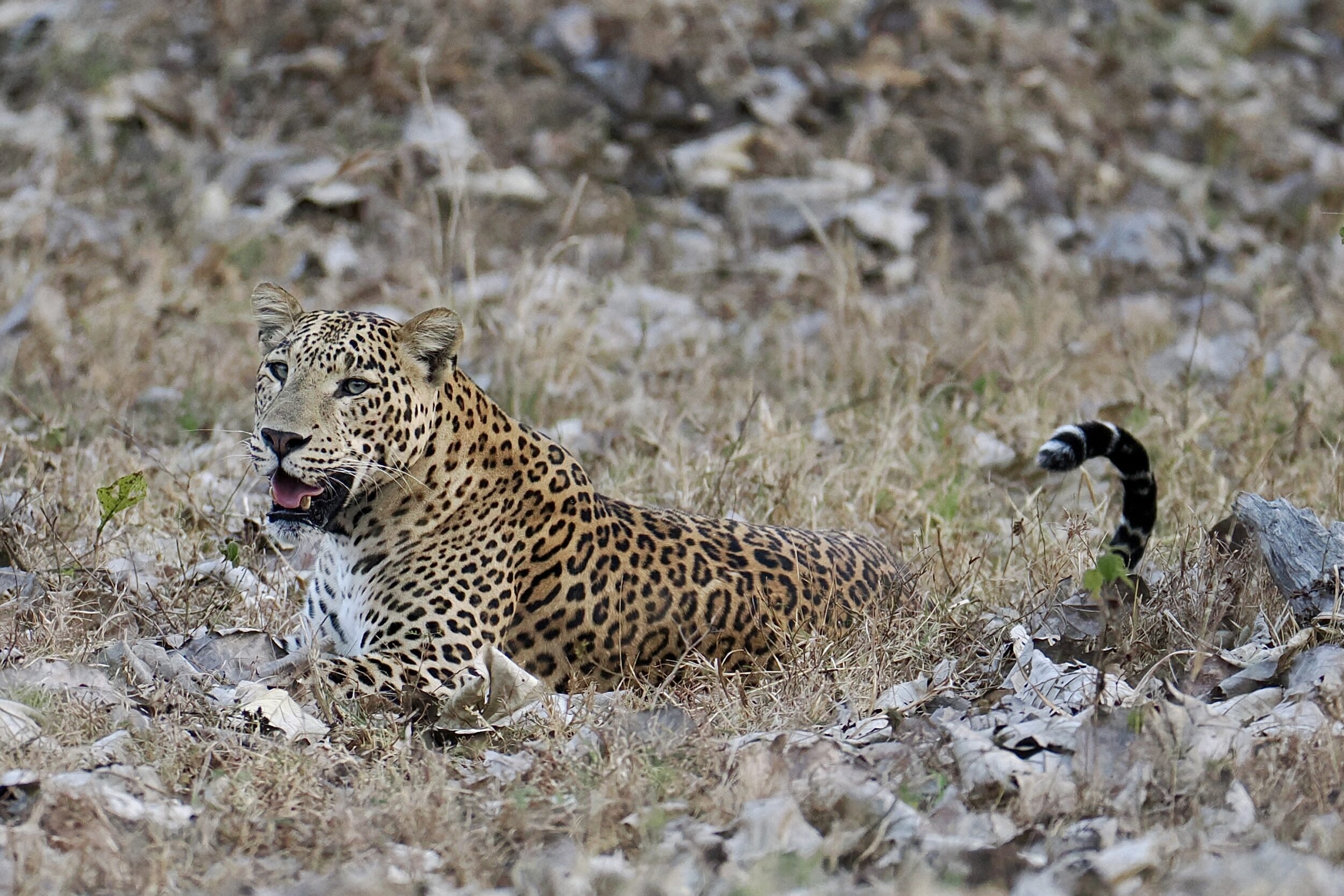Leopards are members of a single species – Panthera pardus – but the eight (or nine) “valid” living subspecies have different characteristics, and their current fortunes/prospects are widely divergent.
Generally, across Africa and Asia, leopard numbers are falling.
India, however, is an exception; after the leopard population had plummeted through “the Raj” period, it has (from a low base) markedly increased – perhaps, by 60 percent – over the last two decades.
This post features one very healthy, confident male.
With the exception of the featured image – taken at 6. 13 pm on 05 March 2023 – all photos are in chronological sequence.
Very probably, this leopard was the same individual we had glimpsed an hour earlier, some distance into thick, mostly dry-season deciduous forest in Nagarhole Tiger Reserve, not far from Mysore.
At 6.12 pm he emerged into the open.
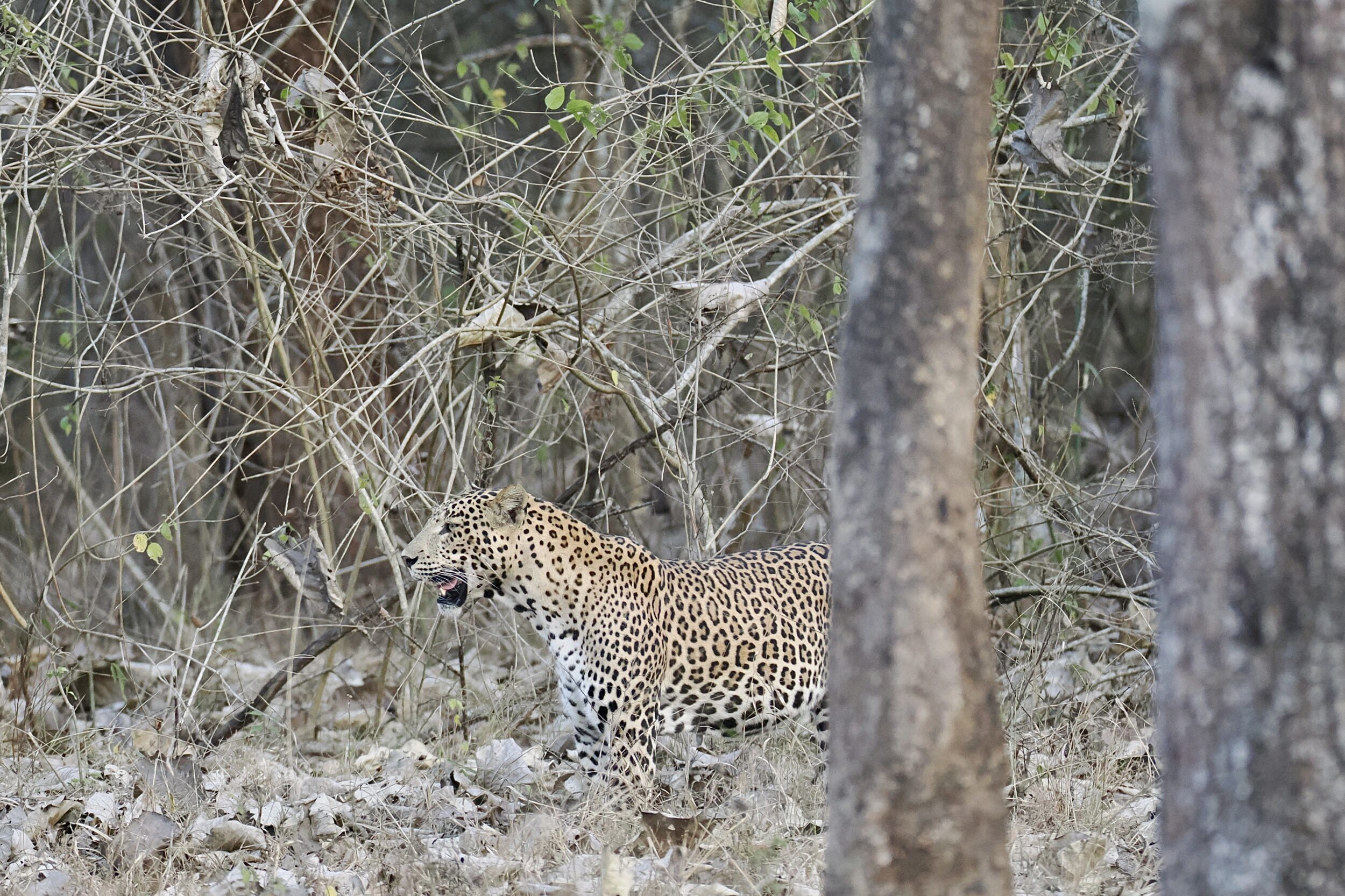
The key factor in boosting one’s chances of seeing a leopard or tiger in such an environment is to listen.
Alarm calls from within the forest – most especially, by peacocks, and/or deer and/or monkeys – betray a predator’s presence and approximate location.
As the predator moves through the forest, so do the alarm calls.
The predator may or may not oblige the hopeful humans by emerging into the open, but the more alert humans are at least able to get a useful sense of where it might be worth waiting, looking, or moving their vehicle.
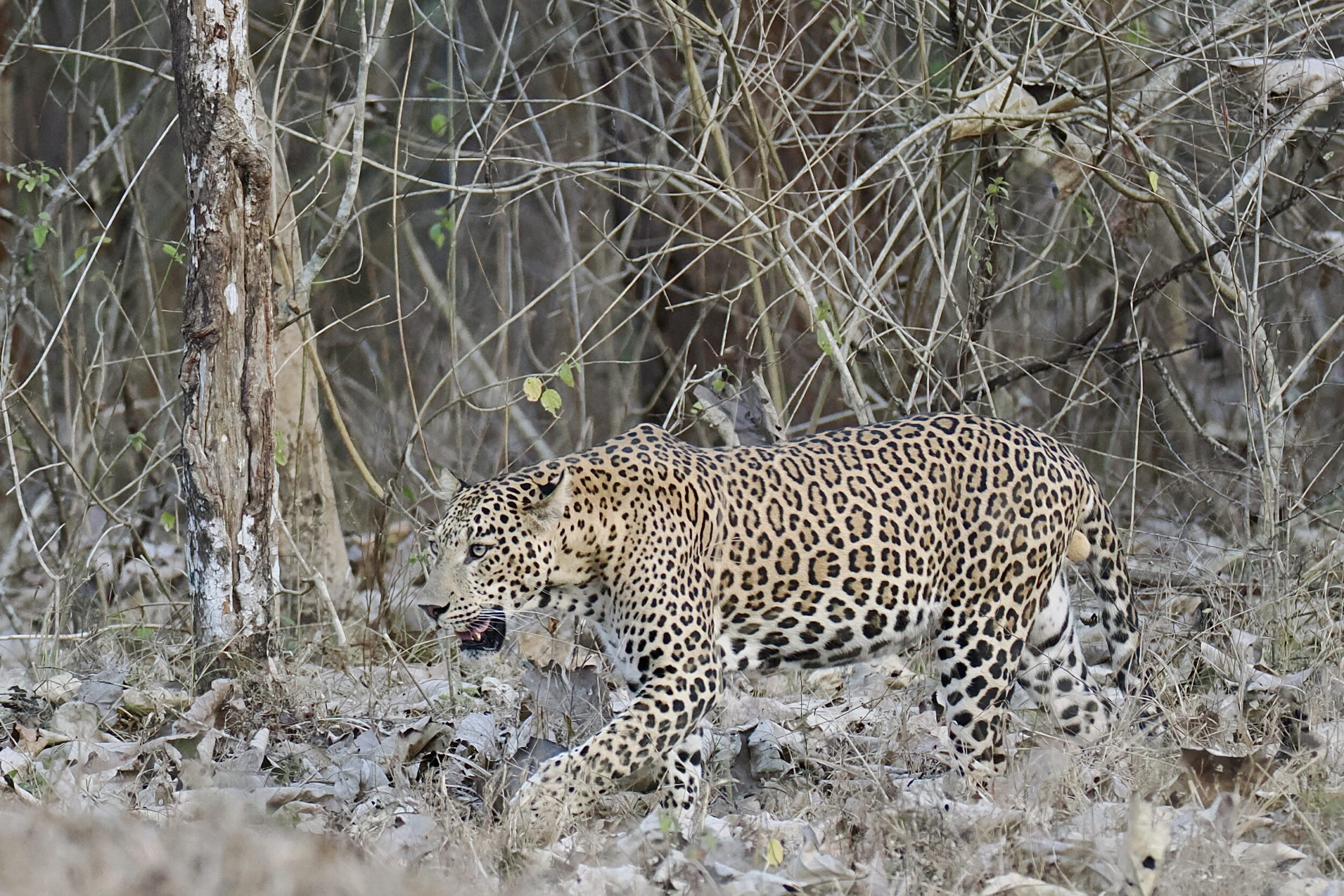
Very soon, our hero” was “relaxed, comfortable and ready to rest”…or so it seemed.
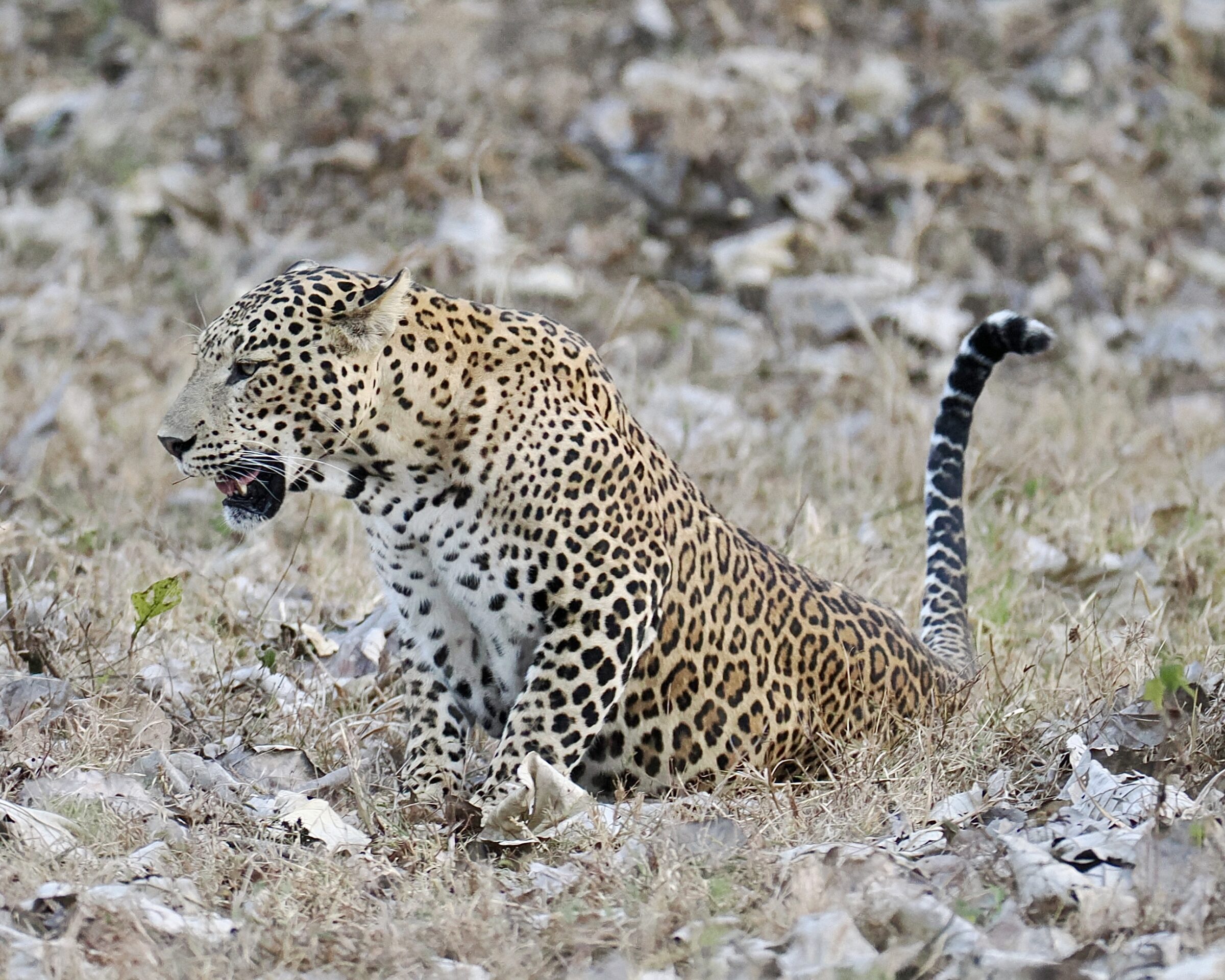
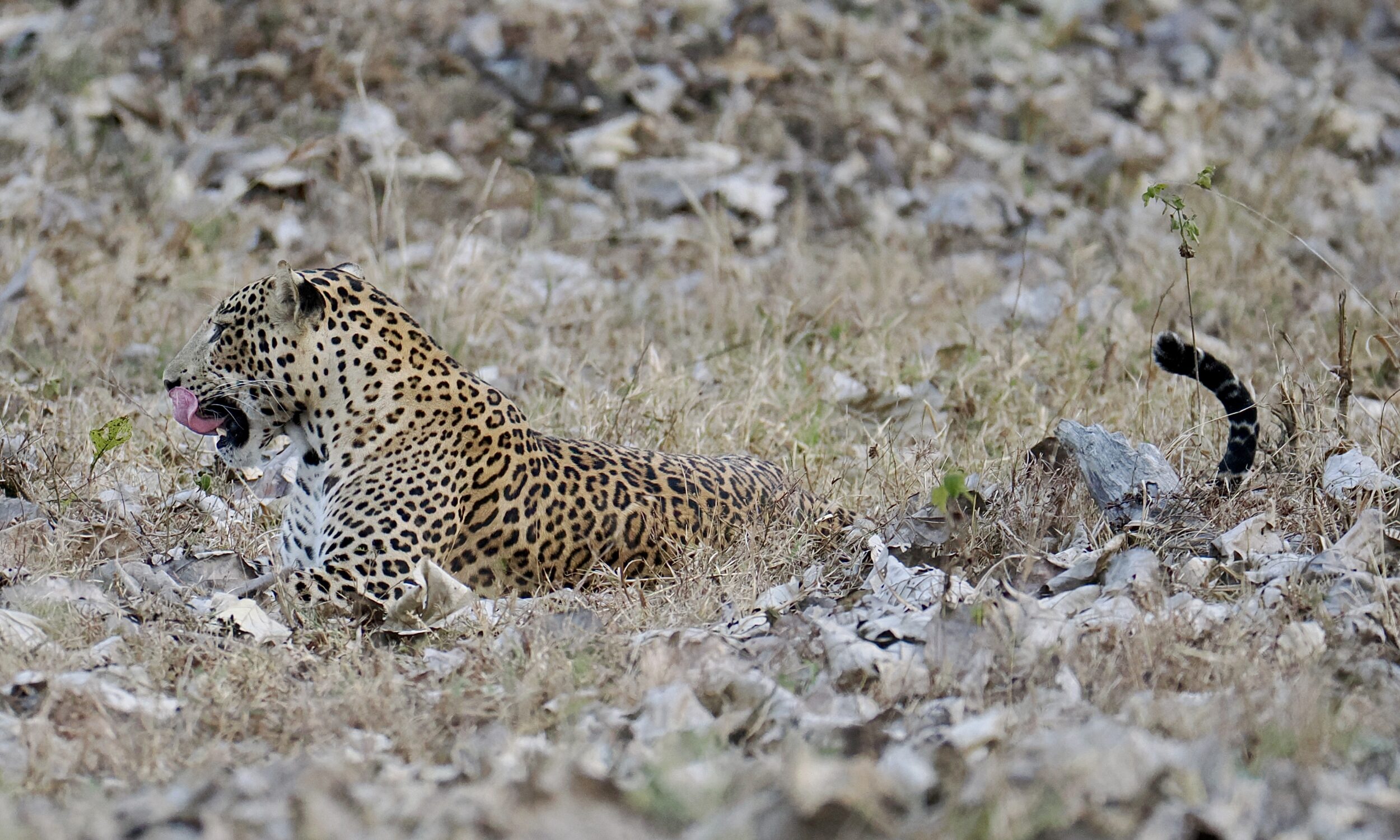
However, within 90 seconds, he was on the move again, albeit only within the clearing, so we continued to enjoy a close, uninterrupted view.
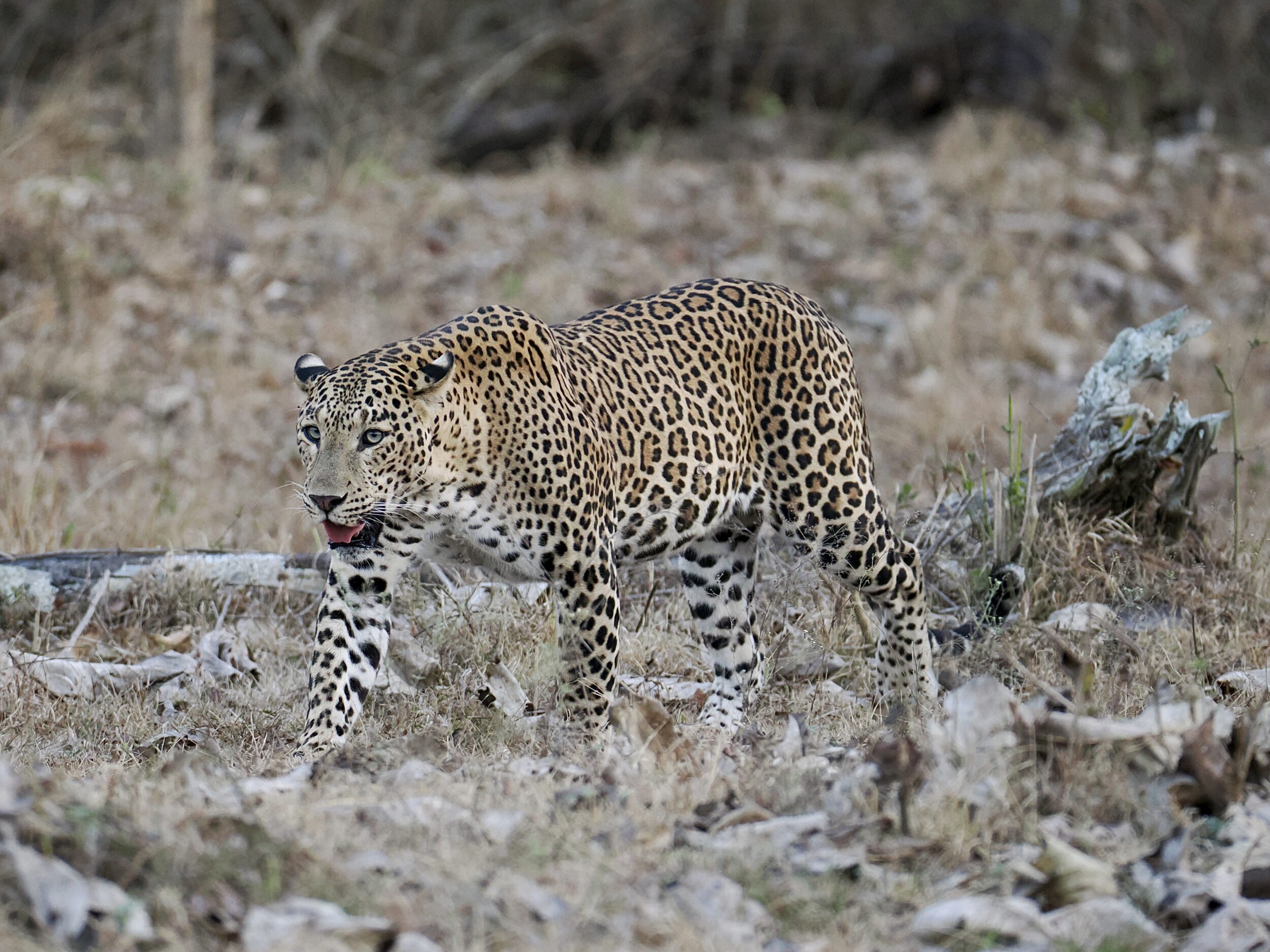
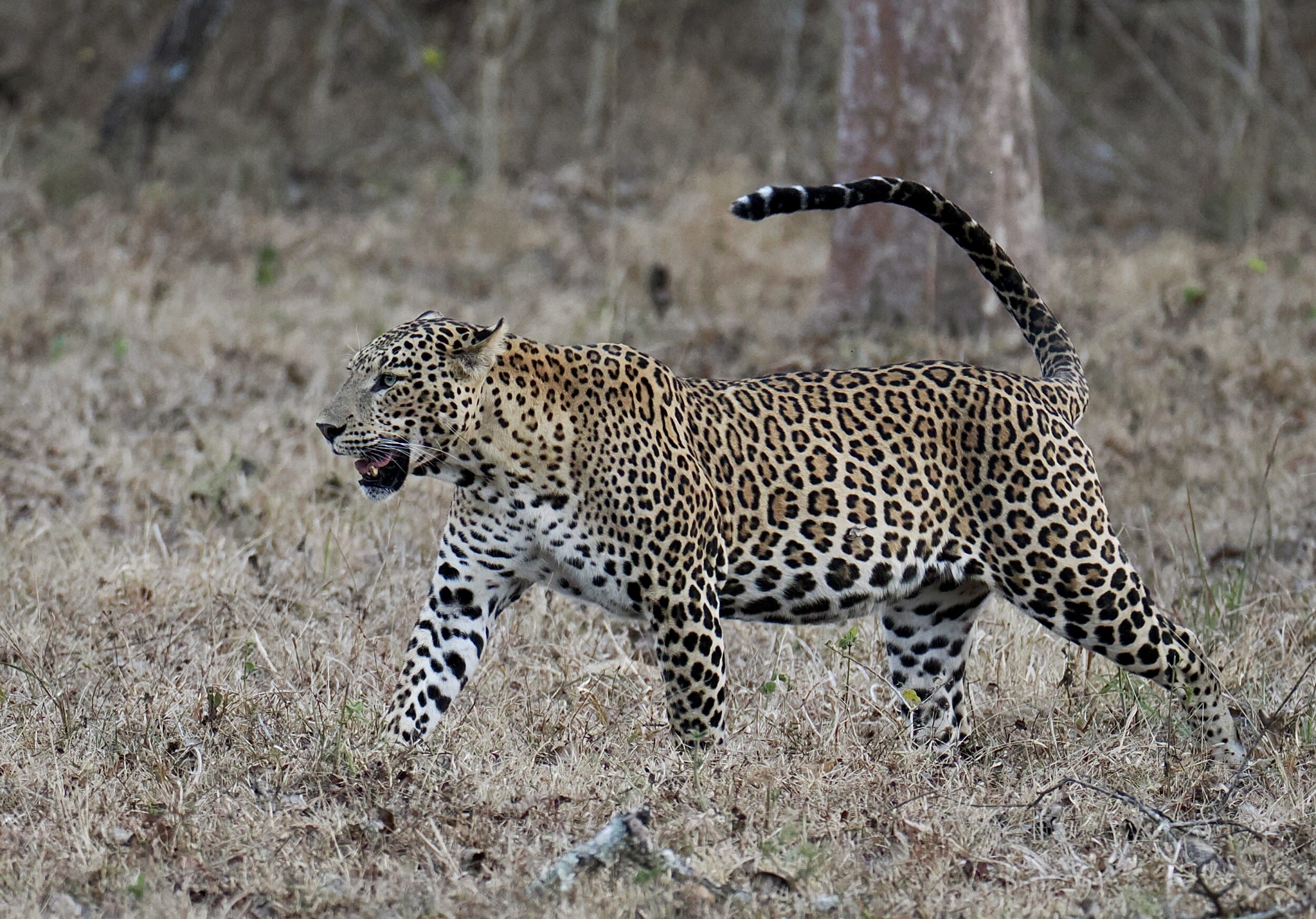
Within three minutes, he had resumed a seated position, a little further away from us.
Over the next several minutes his feet and torso remained almost stationary, whilst head and tail were much more mobile.
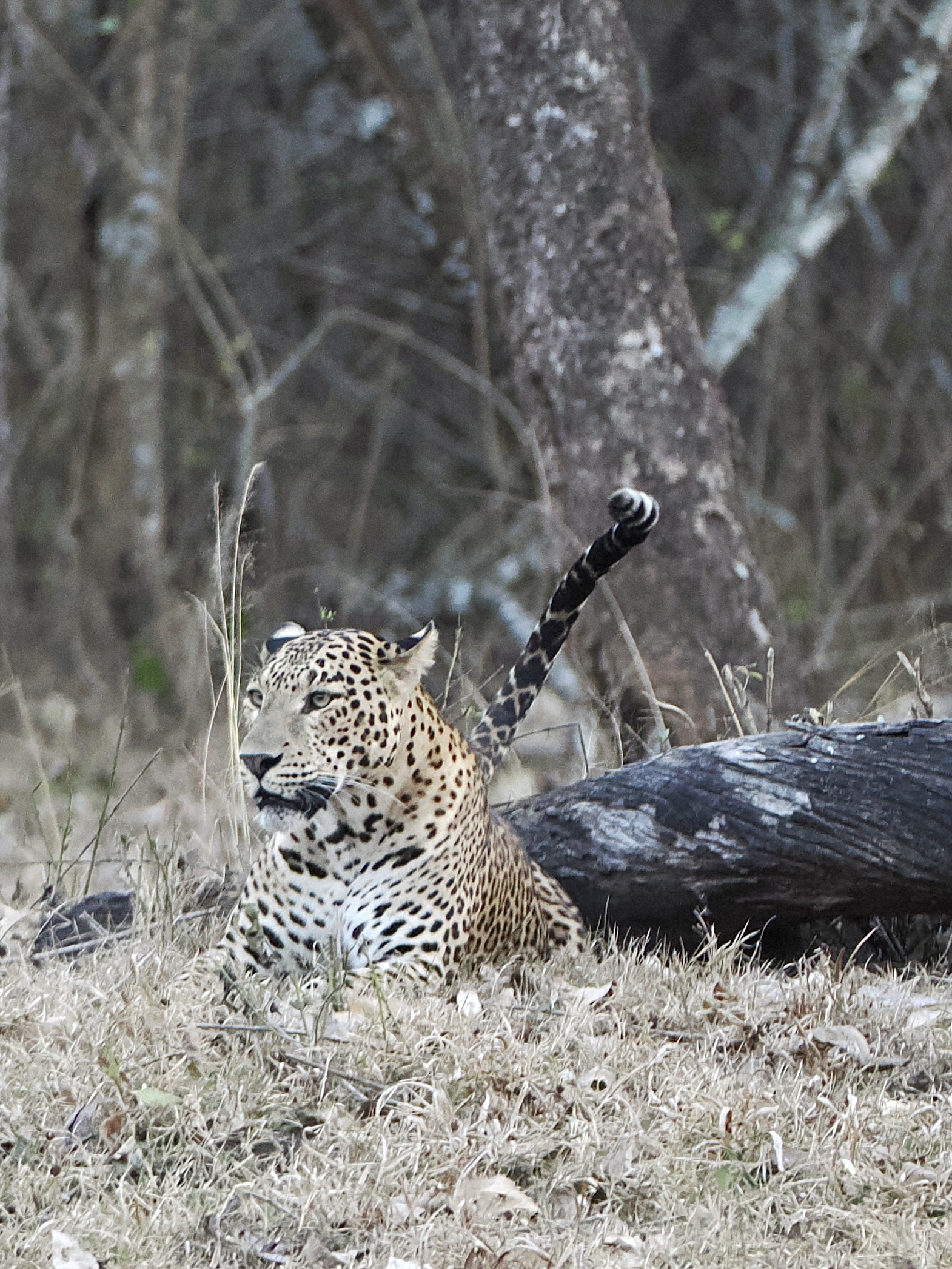
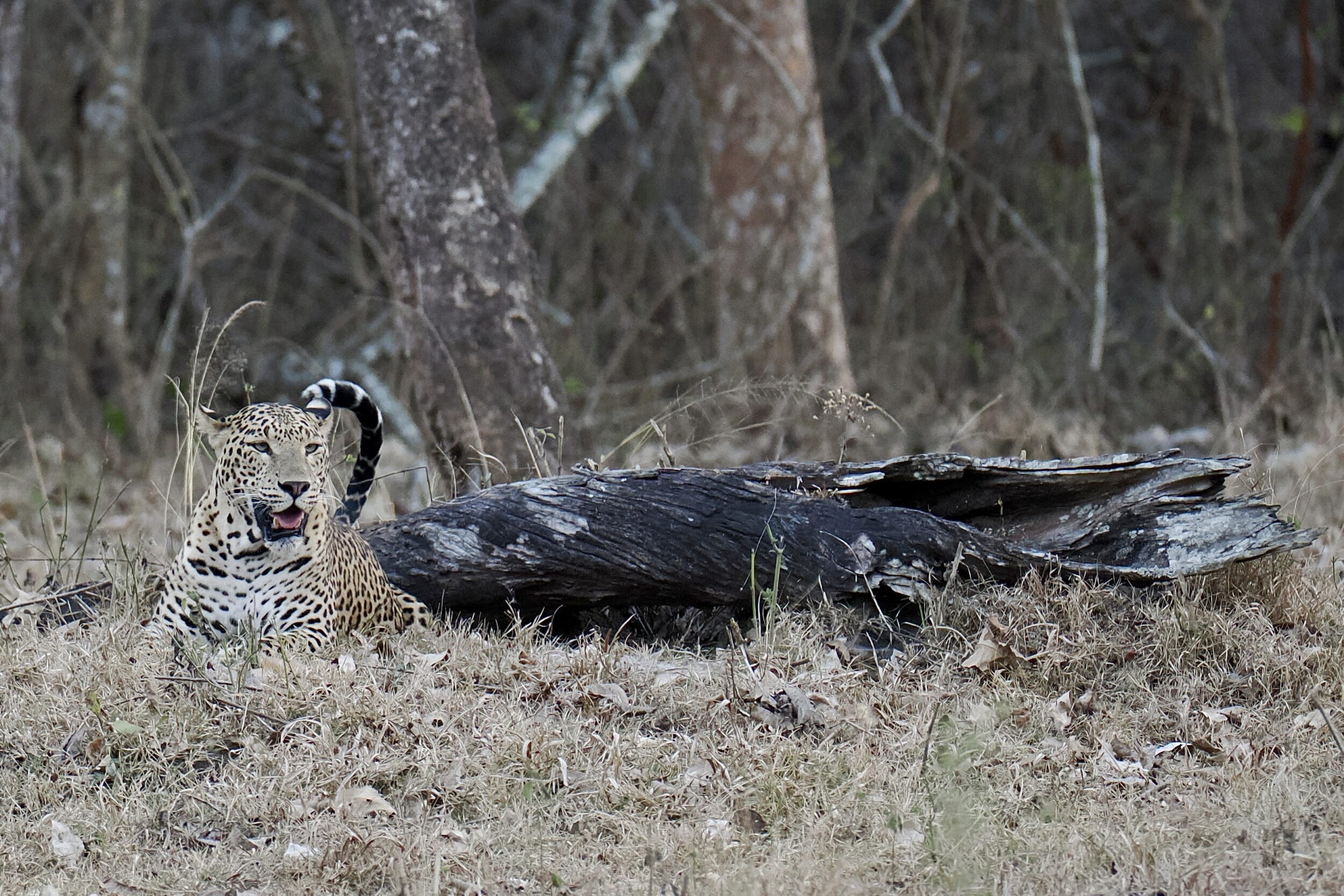
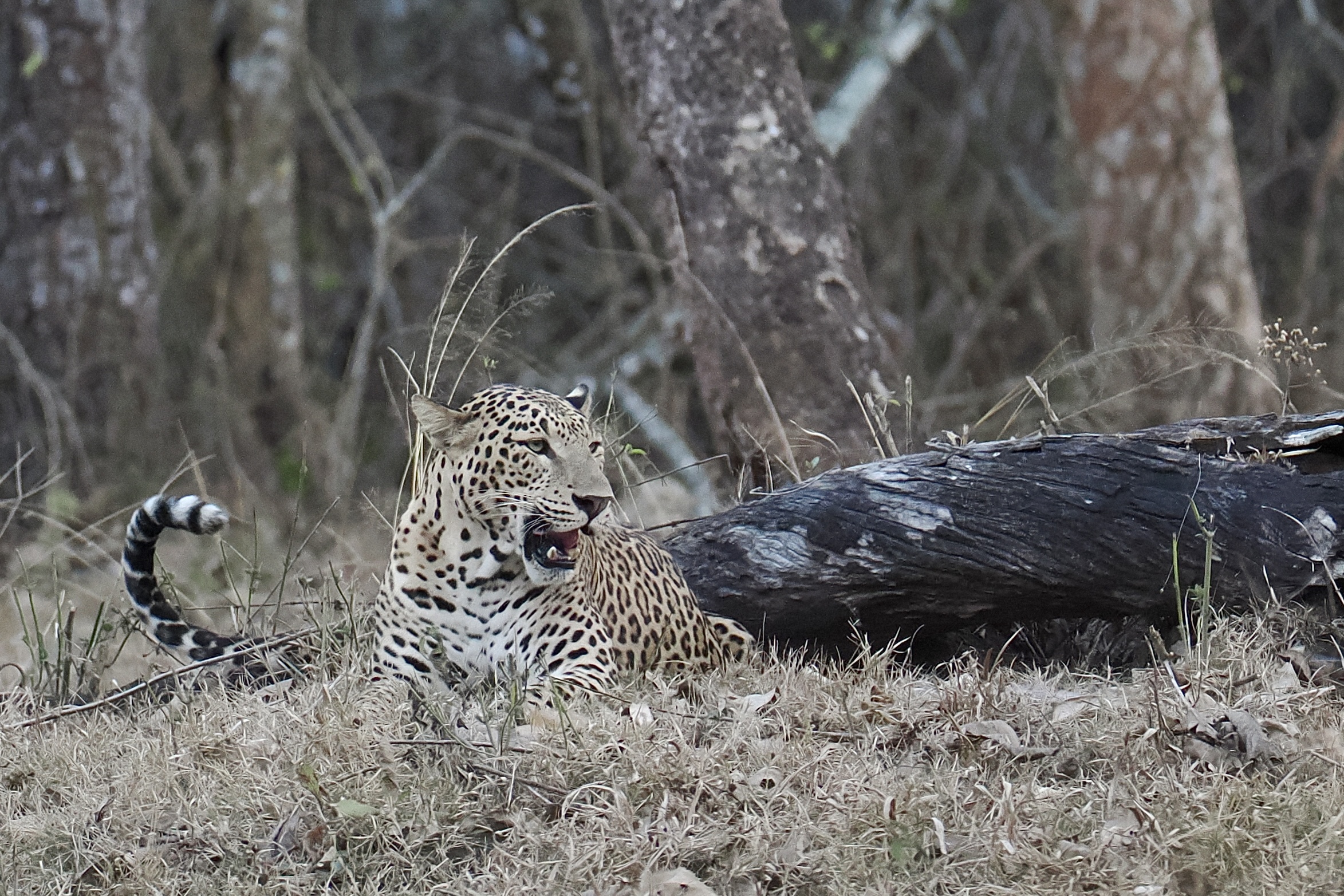
At 6.22 pm we could no longer delay our departure.
Penalties apply to those who do not vacate the national park by sunset.
A “Tiger Reserve” is the “highest” classification of Indian national park; by definition, it has tigers, is of substantial size, and has rigorously-enforced access conditions.
At any given time, a substantial portion of a Tiger Reserve will be “off limits” to tourists.
Click here to discover more about the Indian leopard, Panthera pardus fusca.
